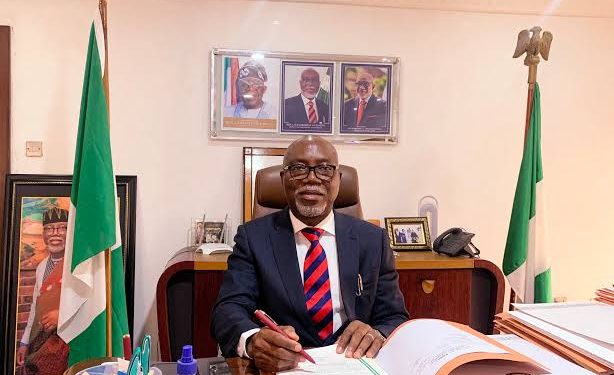The Ondo State Government has urged the Supreme Court to dismiss the suit filed by the Attorney-General of the Federation and Minister of Justice, Lateef Fagbemi (SAN), on behalf of the Federal Government, seeking full autonomy for the 774 local governments in the country.
The government, in its preliminary objection filed June 6, by the state Attorney General and Commissioner of Justice, Olukayode Ajulo (SAN), which was made available to newsmen on Friday, described the Federal Government as a busybody “a meddlesome interloper” for trying to interfere in the business of states and local governments affairs.
The state government argued that the central government has no right or interest affected or likely to be affected by the action it complained against, adding that the proper and necessary parties for the purpose of invoking the original jurisdiction of the Supreme Court are not before the court.
The state also claimed that the Federal Government lacks locus standi to institute the suit for the local governments.
The objection, which was predicated on 27 grounds, contended that the Attorney General of the Federation cannot single-handedly rewrite the Nigerian Constitution by asking the Supreme Court to assume jurisdiction to hear and determine the suit that he filed in flagrant violation of section 232 of the 1999 Constitution, Section 1 of the Supreme Court Act 3, 2002 and Order 3, Rule 6 of the Apex Court
The AGF had dragged all 36 state governments in the country before the apex court, accusing them of misconduct in the management of local governments’ funds and affairs and demanded that the apex court grant local governments full autonomy and their monies in the Federation Account be channelled directly to the councils.
Ajulo, however, on behalf of the Ondo government, who is the 28th defendant in FG’s suit, stated that the notice of objection claimed that Section 232 of the Constitution only permitted the invocation of the original jurisdiction of the Supreme Court where there is a dispute between the federation as plaintiff and states as defendants which involves any question of law or fact on which the existence or extent of the legal right of either the federation or states depends.
Maintaining that the Federal Government has no locus standi to institute the suit, the Ondo government claimed that the funds complained of in the suit belong to local governments created by the constitution as a distinct and different tier of government independent of the federal government.
The state government claimed that pursuant to Section 7 (1) and 162(8) of the Constitution, its State House of Assembly enacted a law to provide for the local government system, establishment, and administration and ancillary matters known as the Local Government Administration, Conduct of Local Government Election and Allied Matters, Cap 87, Volume 2, Laws of Ondo State of Nigeria, 2006, it, therefore, insisted that by the combined provisions of the Constitution, the federal government has no right or obligation on the allocation and distribution of the funds standing to the credit of local governments in Ondo State and that no law has placed any obligation on the federal government I’m respect of the terms and manners local government funds should be allocated or distributed.
Citing Section 162(3) of the 1999 Constitution, the Ondo State Government insisted that any amount standing to the credit of the federation account shall be distributed among the federal and state governments and the local government councils in each state on such terms and in such manner as may be prescribed by the National Assembly, adding that the sharing among the three distinct tiers is not subject to the discretion or any terms and conditions of the federal government.
He further said that by the provisions of Section 162(8) of the 1999 Constitution, “the amount standing to the credit of local government councils of a state shall be distributed among the local governments on such terms and in such manner as may be prescribed by the House of Assembly of the State”.
He contended that “the distribution or usage of the said funds of local governments especially in Ondo State, is not subject to the discretion or any terms and conditions to be prescribed by the federal government”.
Insisting that by the provisions of Section 7(1) of the constitution, the government of every state and not the federal government shall ensure the existence of democratically elected local government councils under a law made by the State House of Assembly and that the said law shall provide for the establishment, structure, composition, finance, and function of such council.
He, therefore, described the FG’s seeking autonomy for local governments as an affront to the principle of the rule of law, democracy, separation of powers, and true federalism, as clearly outlined in the Constitution.
Ajulo claimed that FG’s suit constituted a gross abuse of the Supreme Court process because the court is not the appropriate forum for determining issues raised by the federal government against the state governments.
The state government, however, prayed for an order of the Supreme Court to strike out FG’s suit for being grossly incompetent.
Meanwhile, the apex court will hear the matter on June 13.











